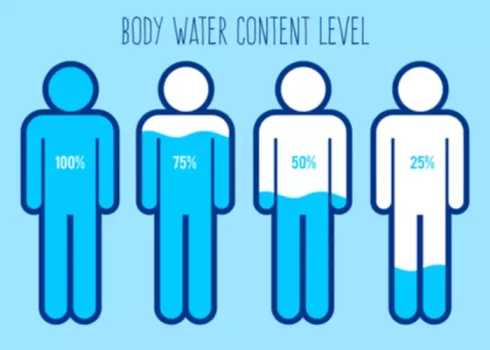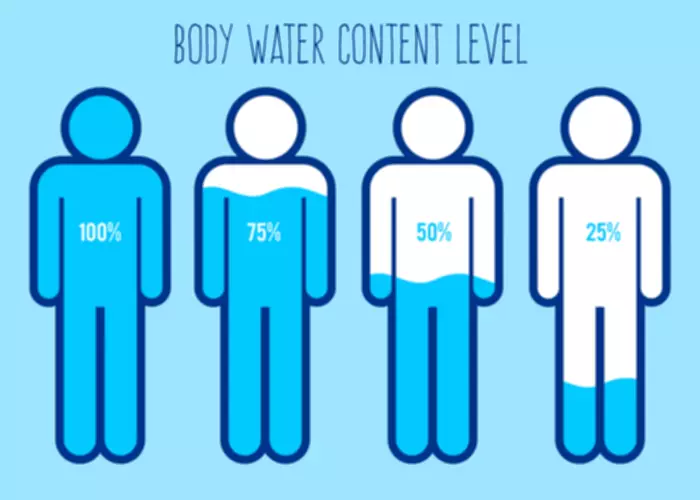
You might also find it helpful to confide in a trusted loved one whose support can be instrumental in your recovery. You could also look for support groups online or in your area for is drinking genetic people with substance use disorders. Because of this, people with the genes ADH1B and ALDH2 might be less likely to develop the condition than those without it.

Physical effects
Alcohol use disorder ultimately develops from an interaction between alcohol and your brain chemistry. While your genes might make you more vulnerable, your behavior patterns, mental health, and life experience all play a role. The gene variations that result in things like nausea, headaches, and skin flushing with alcohol consumption may be more common in those of Asian or Jewish descent. These groups typically have a lower risk of developing alcohol use disorder compared to other populations. Some mental health conditions may be a risk factor for developing alcohol use disorder, including clinical depression and schizophrenia, which also have a genetic component. Of the 17 studies reviewed by Yeomans, ten showed increased food intake following alcohol consumption 5.

What gene is responsible for increased AUD risk?
- Children of addicted parents are more likely to become addicted than other children.
- And to make things even more complicated, some research suggests your relationship with alcohol might actually affect your genes.
- Also, Beulens et al. 51 reported similar results in 34 male adults with large WC, consuming 450 mL of red wine per day for 4 weeks, compared to consuming alcohol-free wine for the same time period.
- Very problematic is the often increased aggressiveness and propensity to violence.
The researchers believe that even larger studies may help to differentiate the genetics behind alcohol addiction. If the condition is serious, attempts to stop drinking very suddenly may lead to severe complications, including withdrawal syndrome and seizures. Some individuals may need to reduce drinking in a hospital or rehabilitation setting to manage acute withdrawal medically. After detox, an individual may choose to attend either residential treatment facilities or outpatient treatment programs. Starting to drink at an early age and mental illnesses such as anxiety, depression, bipolar disorder, ADHD, and schizophrenia, also put https://ecosoberhouse.com/ an individual at a higher risk of developing the condition.

Environmental Risk Factors for Alcoholism
- Although there is evidence to suggest that frequent alcohol intake may predispose to weight gain or obesity over the long-term, this effect is not strongly reflected in the recent research.
- From 2001 – 2012, the condition increased by 50%, and this increase was more pronounced in women, rising 80% over the time frame.
- While your genes might make you more vulnerable, your behavior patterns, mental health, and life experience all play a role.
- This condition affects several brain systems, which can cause some people to form a physical dependency on alcohol.
- In some people, a variant with reduced activity is present, resulting in more severe symptoms of intoxication.
According to the 2021 National Survey on Drug Use and Health, AUD affects approximately 29.5 million people in the United States. More than 800,000 of the people affected are children between the ages of 12 and 17 years. Note that the official names of several ADH genes have been changed, and theliterature has been confused by some groups using non-standard names for some ofthe genes29. The remaining 50% is attributed to your environment and circumstances, especially during the developmental years spanning childhood to early adulthood.
THE GENETIC BASIS OF VULNERABILITY TO ALCOHOLISM

We published a comprehensive review of the genetics of alcoholism over a decade ago 1. Since then, there have been significant advances in techniques available for mapping genes and as a result considerable changes in outlook marijuana addiction have occurred. It is now generally accepted that genetic risk for alcoholism is likely to be due to common variants in numerous genes, each of small effect, however rare variants with large effects might also play a role. After years of family-based linkage studies and case-control candidate gene studies, attention has shifted to large scale genome-wide association studies (GWAS) for the detection of novel common variants (≥ 1%). Exome and whole genome sequencing studies for the detection of rare variants are beginning to emerge. However, it should be borne in mind that no matter how sophisticated genetic techniques might become, further advances in detecting genotype – phenotype associations are hampered by the fact that alcoholism is a heterogeneous phenotype.
- Since then, there have been significant advances in techniques available for mapping genes and as a result considerable changes in outlook have occurred.
- He distinguished between “acute alcoholic disease or intoxication” and “alcoholismus chronicus.” However, this recognition did not prevail for a long time.
- The GI tract is exposed to very high levels of alcohol as it passes throughthe mouth, esophagus, stomach and intestinal tract, and most ethanol passes throughthe liver before entering the circulation.
- For example, a study in 33,332 patients and 27,888 controls used a combination of polygenic risk score analyses and pathway analyses to support a role for calcium channel signaling genes across five psychiatric disorders 79.
- These include both genetics and environmental factors, and possibly even a combination of the two.
- Researchers are now starting to explore the many biological and psychological mechanisms that could influence our experience during hangovers.
